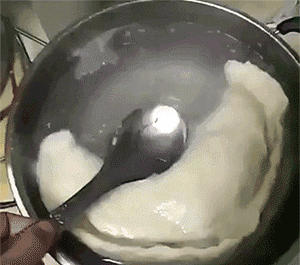Signs of overplaying—once you notice them, you’ll be shocked!

Not going to the court to play is simply unbearable—I can’t help but get caught up in the rhythm and intensity of the game, which easily leads to overexertion.

There are several reasons for shoulder pain, but one of the most common is prolonged playing, which puts excessive strain on your muscles, leading to soreness. Some players initially experience shoulder pain, but after taking a week of rest, the discomfort disappears—this clearly indicates that you’ve been overdoing it during your game.
Another common cause of shoulder pain is improper form: when you raise your shoulder to the position needed for a swing or shot, you feel pain—but not when your shoulder is still lower. This suggests, on one hand, that you may be overtraining your shoulders, and on the other, that your technique during play isn’t quite right.

If you twist your ankle, your body is seriously warning you—you’ve overexerted yourself, and your feet no longer want to keep up. In this situation, you should stop playing immediately and give yourself plenty of rest.
Everyone knows that for people who exercise regularly, muscle soreness after a workout usually subsides by the next day. However, if you experience persistent muscle pain—lasting 3 to 4 days or longer—it could be a sign of overexertion and inadequate recovery. In such cases, while reducing your workout intensity, consider incorporating light massage or applying a warm towel to help prevent further muscle damage.
After finishing the game, my legs felt so heavy I could barely lift them—my feet dragged along the ground as I shuffled forward. What usually takes 10 minutes now took me half an hour to walk. And carrying the bag felt like lugging around a massive mountain, leaving me gasping for breath and completely drained, as if my energy had been siphoned right out of me!
When you play sports more than four times within a single week, it may indicate that your exercise volume is already excessive—and your body simply can’t handle that level of activity without risking potential issues.
Every time I go to the gym to play, I stay for more than two hours—until I’m so exhausted I can barely move. This kind of intense exertion takes a serious toll on my body and doesn’t even lead to the so-called "overcompensation recovery" effect. That’s why it’s crucial to manage your workout duration wisely—don’t let your personal preferences dictate how long you push yourself.
Even on the second or third day after exercising, the fatigue hasn’t gone away—your muscles are still sore, and you feel utterly drained. When you experience these symptoms, it’s a clear sign that you’ve pushed yourself too hard, and your body will need extra time to recover fully.
Excessive exercise causes the body to divert more blood to the muscular system, leaving less blood flow to the internal organs—and this can lead to a loss of appetite. If you start experiencing poor appetite, it’s a clear sign that you may be overexercising, so it’s time to ease up and pay attention to your body’s needs.

Originally, exercise is thought to promote sleep—but that’s not always the case. Often, people find it harder to fall asleep after working out, especially when they’re exhausted from physical activities like playing sports. In such instances, it’s important to watch out for sleep disturbances caused by overexertion.
Chest tightness and dizziness are also signs of overexertion. If you start feeling chest discomfort, lightheadedness, or even struggling to catch your breath while playing, it’s a clear indication that you’ve pushed yourself too hard—and you should stop exercising immediately. Be especially cautious during summer, as these symptoms could be early warning signs of heatstroke. When playing in hot, humid indoor courts during the summer months, take extra care to reduce your workout intensity compared to other seasons.
When golfers finish their game, they often feel drained, fatigued, and sluggish the next day, with a general sense of weakness throughout their bodies. Even their physical stamina and mental clarity can become foggy and slow. This is a classic sign of overexertion—so it’s crucial to either cut back on exercise or take a break altogether. Otherwise, pushing yourself too hard could seriously harm your health.
Excessive exercise can also lead to persistent sweating as a sign—after you stop working out, even slight movement or sipping warm water may trigger perspiration. This could indicate overexertion and your body being pushed beyond its limits, so it’s important to take it seriously.
This sign is especially relevant for ladies, as many female badminton players are just as passionate about the sport as their male counterparts—some even choose to play during their periods. However, combining this with excessive exercise can easily lead to irregular menstrual symptoms. Therefore, female players should carefully manage their workout intensity and plan their sports activities around their menstrual cycles.


Related Articles

A primary school student's essay titled "My Dad Loves Playing Badminton" stunned the teacher—and quickly went viral across the internet.

Rumors surface online: Is Chen Long about to officially announce his retirement? Recently, he was spotted coaching the Chinese national badminton team as an expert.
